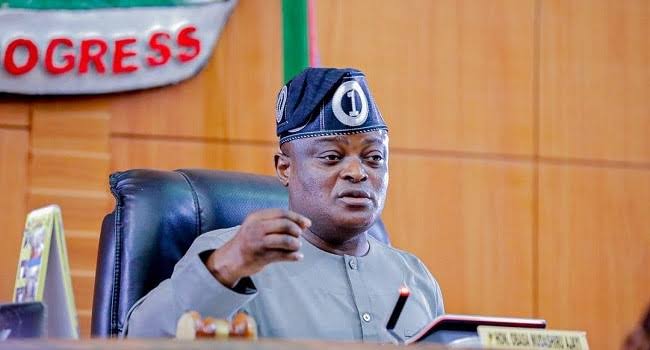
In a landmark ruling that resolves weeks of political turmoil, Justice Yetunde Pinheiro of the Lagos State High Court has nullified the removal of Mudashiru Obasa as Speaker of the Lagos State House of Assembly, declaring the January 13 impeachment proceedings unconstitutional.
The court’s decision, delivered Wednesday morning, effectively reinstates Obasa to his position and invalidates all legislative actions taken during the controversial session that saw 35 lawmakers install Mojisola Meranda as new Speaker.
The judicial intervention comes after Obasa’s legal team, led by Chief Afolabi Fashanu (SAN), successfully argued that the impeachment occurred under irregular circumstances – while the Assembly was officially on recess and the Speaker was abroad. The suit contended that the sitting lacked proper authorization, violating both constitutional provisions and the Assembly’s standing orders.
“This ruling affirms that due process matters in our democracy,” court observers noted as the judgment was being read. “The Speaker’s removal without proper notice or opportunity to defend himself constituted a clear breach of legislative protocols.”
The leadership crisis had taken a dramatic turn earlier this week when the reinstated Speaker unilaterally replaced the Assembly’s legal representation, a move that sparked fresh tensions among lawmakers. Political analysts suggest the court’s decision may reopen divisions within the House, though it remains unclear whether Obasa’s opponents will challenge the ruling.
Legal experts highlight that the judgment sets an important precedent regarding legislative procedures, particularly the necessity of following established rules during leadership changes. All decisions made during Meranda’s brief tenure as Speaker have now been rendered null and void.
As Obasa prepares to resume office, political watchers anticipate potential reshuffles in House committees and leadership positions. The ruling All Progressives Congress (APC), which controls the Assembly, has yet to issue an official statement on the court’s decision.
This development marks the latest chapter in Lagos State’s dynamic political landscape, where intra-party disputes occasionally spill into public view. The court’s firm stance on constitutional due process may influence how future legislative leadership transitions are conducted across Nigeria’s state assemblies.






